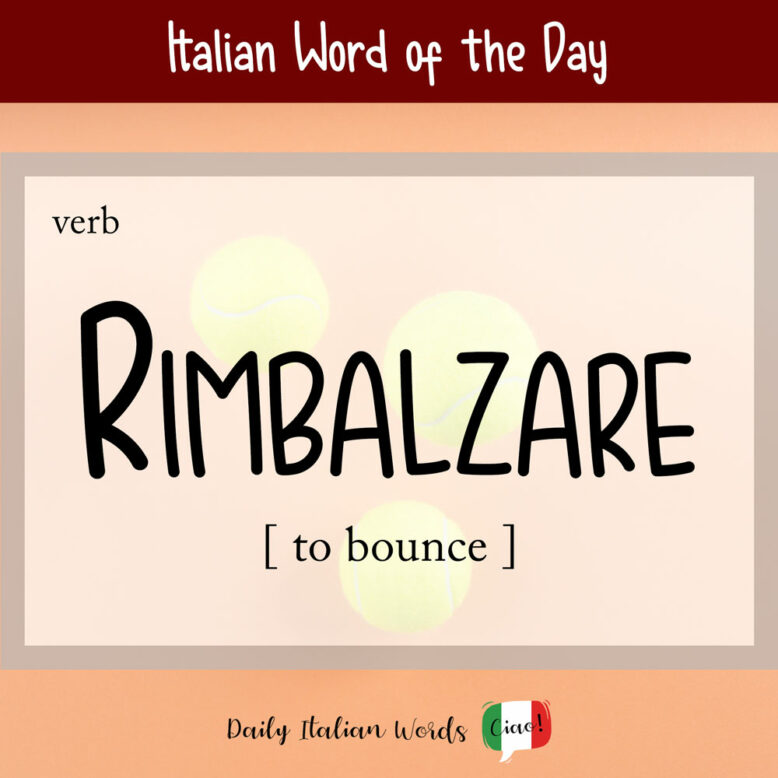Today, my husband and I discovered a brand-new technique to help our extremely fussy baby to sleep during the day: we hold him tightly in our arms while bouncing him on an exercise ball!
The word for the intransitive verb to bounce in Italian is rimbalzare. It is formed from the prefix rin- (which is an intensifier) and the verb balzare (to jump, to leap).

La palla è rimbalzata sul pavimento.
The ball bounced off the sidewalk.
Did you know that…?
An interesting fact about this word is that its auxiliary verb can be either essere or avere. This means it is possible to say, for example, la palla è rimbalzata or la palla ha rimbalzato (the ball bounced).
To make the verb transitive, you have to add the verb fare (to do/make) in front of rimbalzare to create far rimbalzare (lit: to make bounce).
Il ragazzo ha fatto rimbalzare la palla contro il muro.
The boy bounced the ball against the wall.

Note: Although rimbalzare is more correct, you’ll often hear the verb saltare (to jump) in informal conversations, especially when the act of bouncing involves a person. So the photo above could be described as Madre e figli saltano sul tappeto elastico. Also, a bouncy castle translates to castello gonfiabile in Italian.
Rimbalzare can also be used in a figurative sense to talk about something, such as news or gossip, that circulates rapidly.
La notizia è rimbalzata in tutta la città.
The news spread quickly throughout the city.
Heather Broster is a graduate with honours in linguistics from the University of Western Ontario. She is an aspiring polyglot, proficient in English and Italian, as well as Japanese, Welsh, and French to varying degrees of fluency. Originally from Toronto, Heather has resided in various countries, notably Italy for a period of six years. Her primary focus lies in the fields of language acquisition, education, and bilingual instruction.


